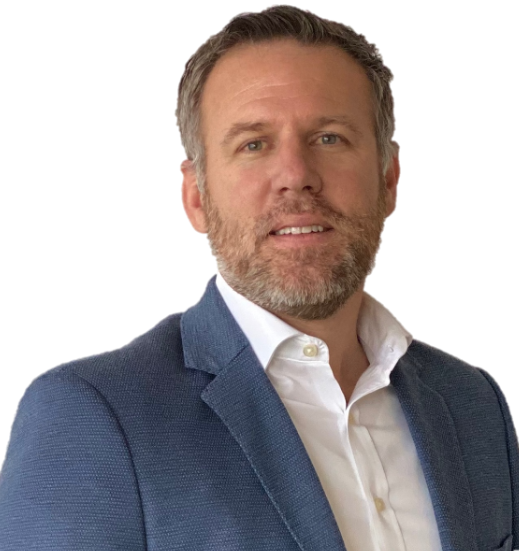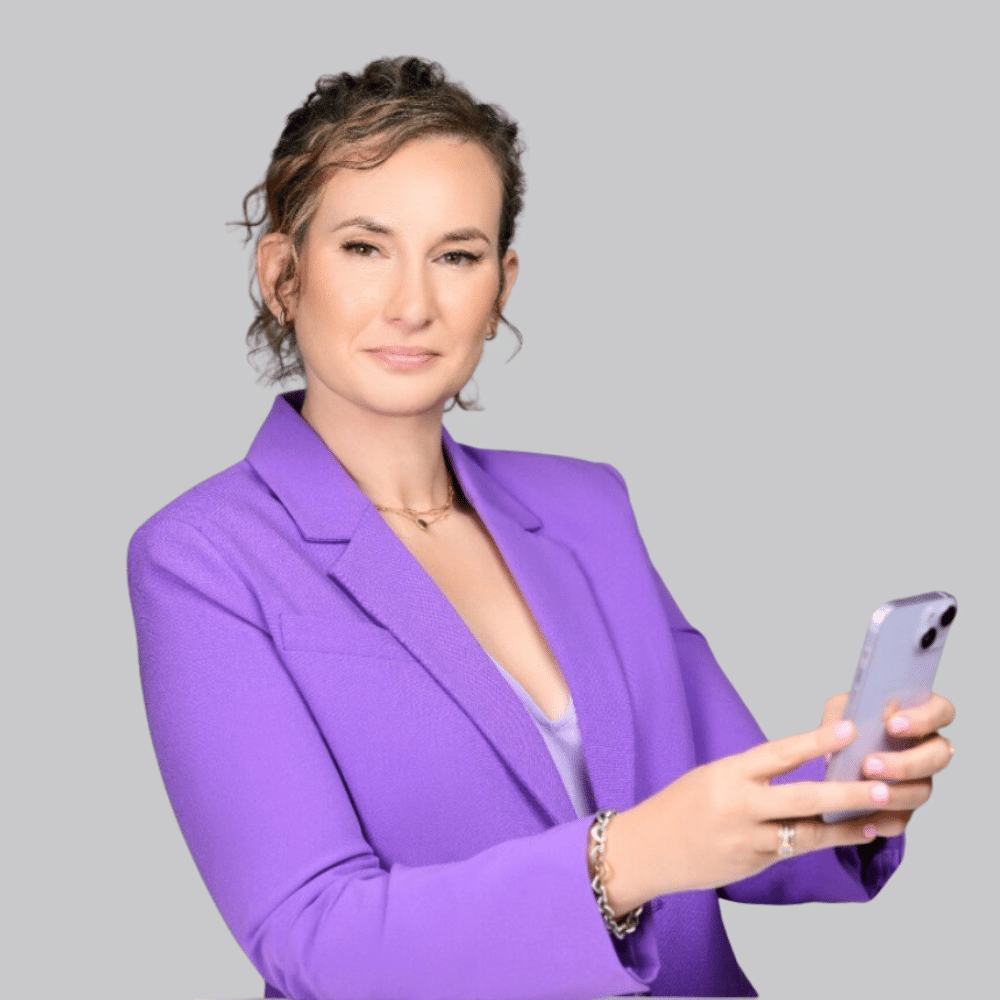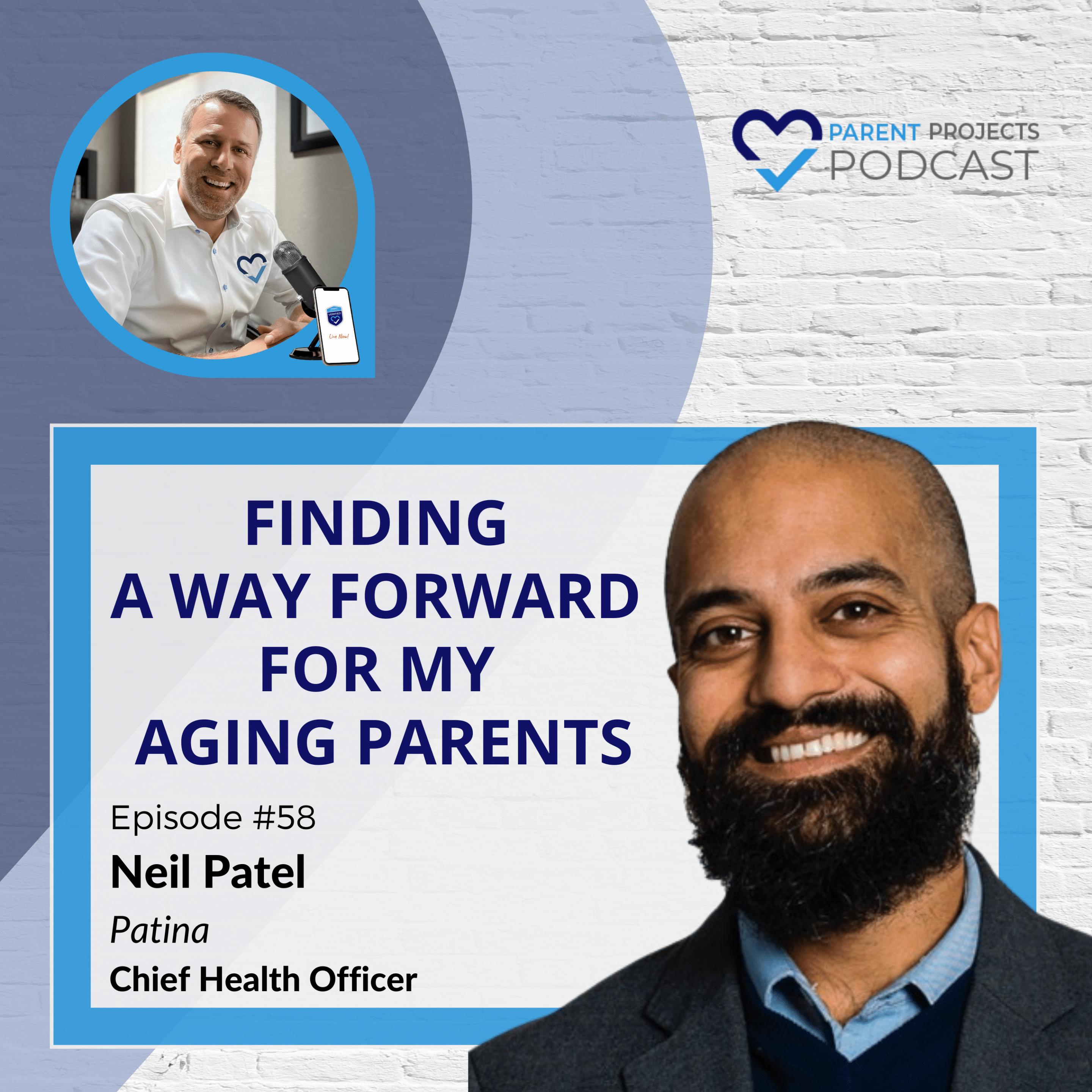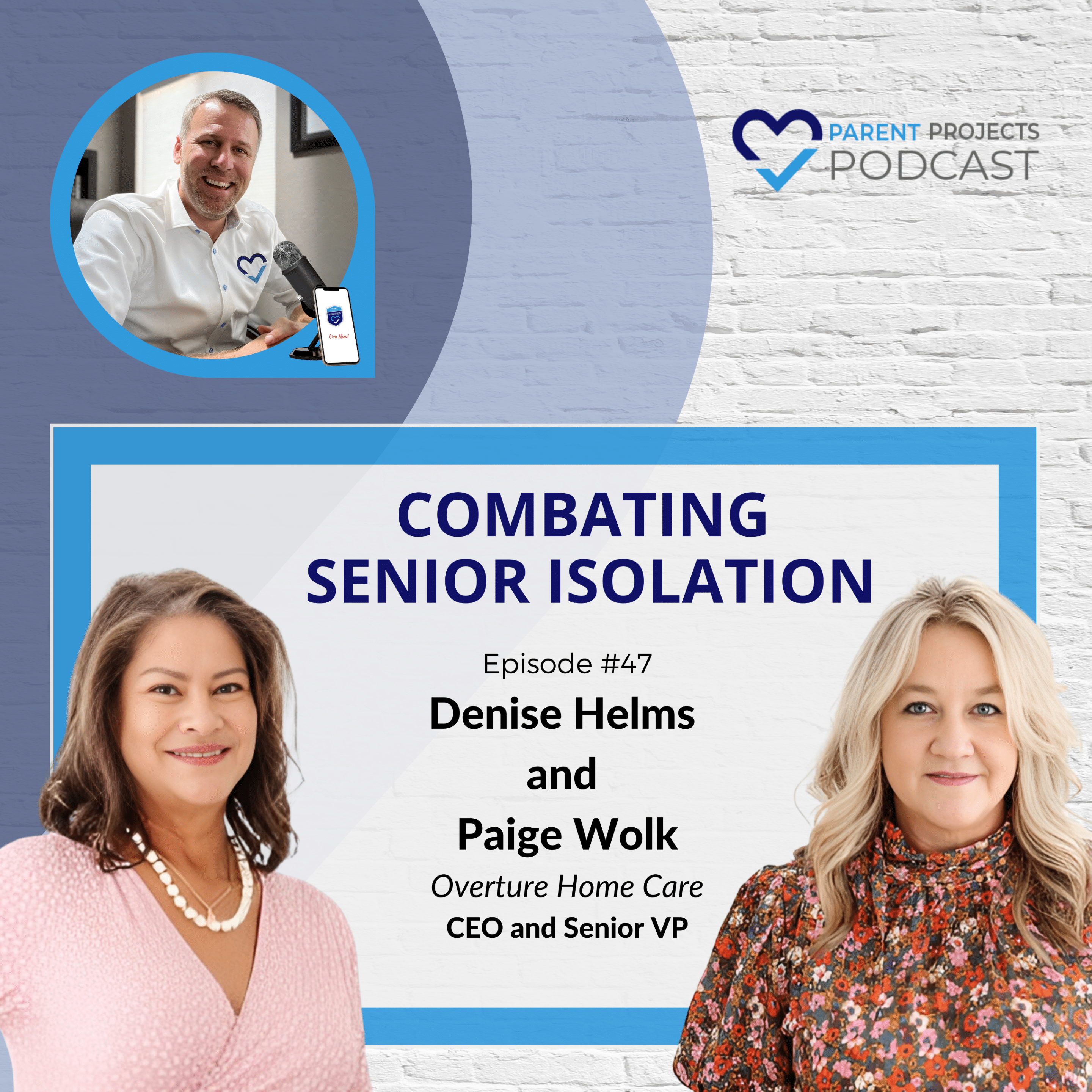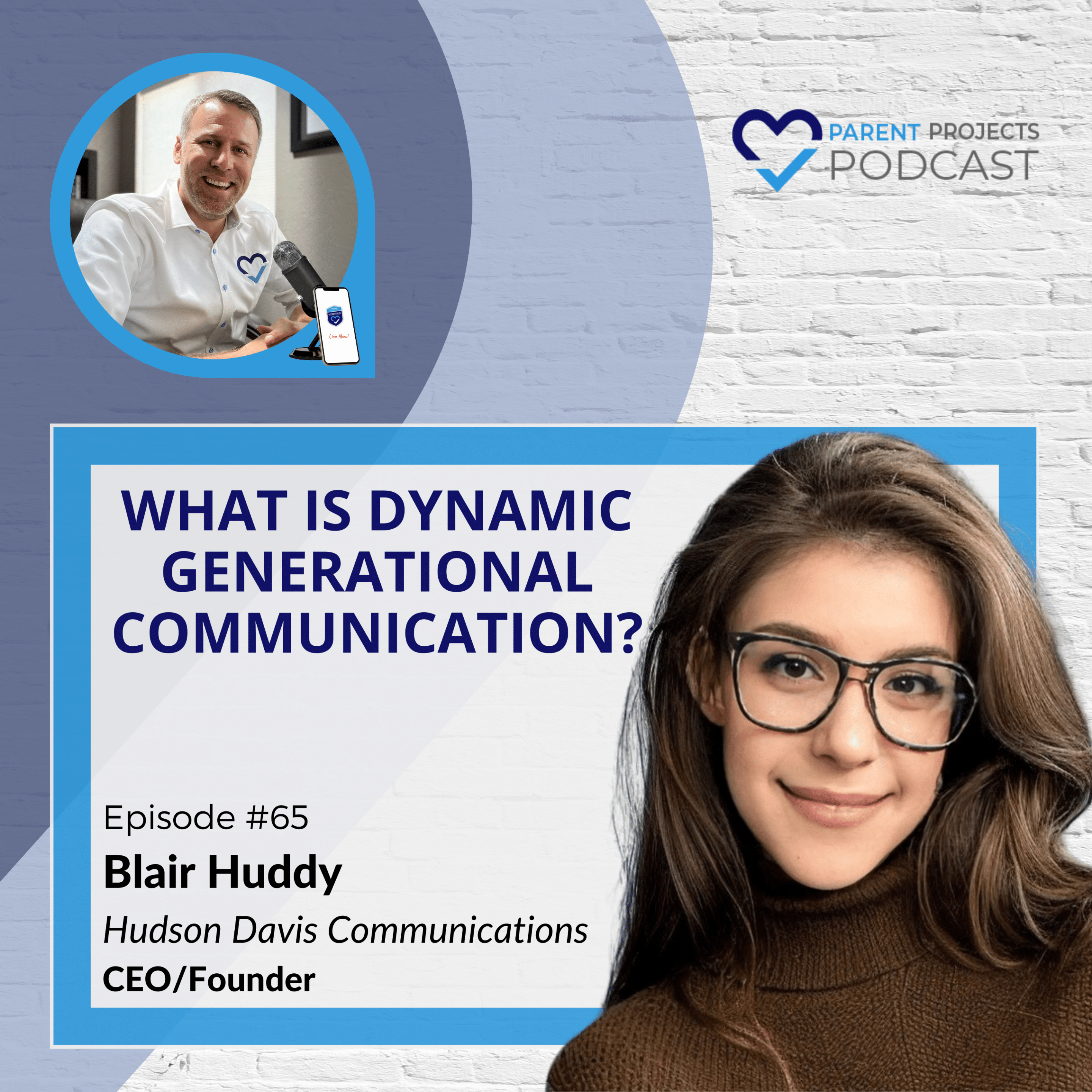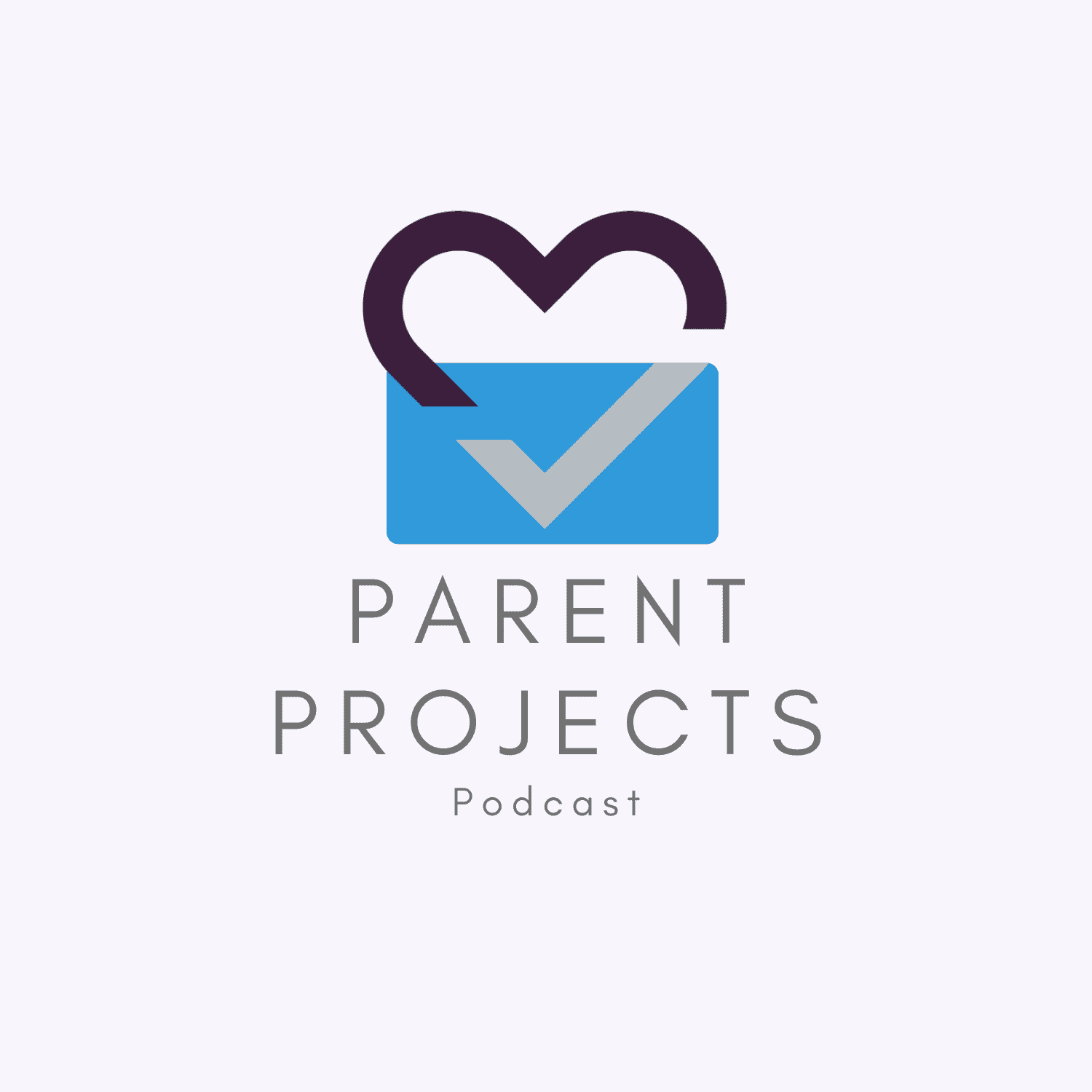Episode Transcript
[00:00:00] Speaker A: Absolutely. You know, that never went away, right? The value in feeling trust in another human being who cares about you, that's not old fashioned, that's real. And we experience that every day in our lives. What's interesting about technology is that it has the power to sort of make the gap worse or close the gap is what I'm finding. So in a society that tends to value, um, youth and tends to value newness and instant gratification, right, we all live in this society.
[00:00:32] Speaker B: As our parents grow older, it can be difficult to guide them through their golden years while still respecting their autonomy and fitting it into our already complex lives. Welcome to the Parent Projects podcast, where our guests share practical wisdom to tackle the issues that impact adult children of aging parents. I'm Tony Siebers.
[00:00:50] Speaker C: Thanks for joining us. Today's guest, Neil Patel, the chief medical officer with Patina Health, is going to challenge us to reimagine what healthcare is going to look like if you didn't have to necessarily leave your home. Ways that can reduce some of the stress of what you see looking left and right across the home for your loved one and bring a little bit of reprieve and to know that the market is looking at better ways to help tomorrow. So sit back and enjoy this conversation. And Neil, I really thank you for joining us here on the Parent Projects podcast. I'm really looking forward to jumping right into this with you.
[00:01:33] Speaker A: Thanks, Tony, I'm glad to be here.
[00:01:35] Speaker C: So talk to us just in a background to understand how you guys look to reimagine what healthcare could look like at a high level, a little bit of how you do that from your position as a doctor and how you guys approach this over at Patina.
[00:01:51] Speaker A: Yeah, I'm happy to. And before I even talk about my perspective as a doctor, been a primary care doc for about 20 years, sort of midway through my career in that sense, I'll start as a son and a nephew to a pretty large family across the US. I'm the youngest of all my cousins. My parents had me late, so I'm the kid brother to lots and lots of cousins, and I happen to be the only doctor in the family. And so, as you might expect, that part of me brings a perspective where it's this phone that dings or rings when my own family needs help. And so for about 20 years, I've been working. I've had the honor and privilege to work in all different kinds of practices, big and small, in different parts of the world and parts of the country. And on the side I was always sort of maintaining. I wouldn't have called it that. But the sort of side practice that was for my family, for my loved ones, for my cousins, and for my uncles and aunts, who often wouldn't be the first to call it'd be their children who were driving them home from the Er or helping them choose whether they needed surgery or not, that would call me. And it was around COVID where those two sort of parts of me came together, where my professional practice, which was always rooted in clinics and was conducted in exam rooms and important conversations were often had with wax paper separating half the conversation from the exam table they were perched on. People were often disrobed having important conversations with me. That world went virtual and started to look a lot like the world in which I operated as a community member and a family member. And that was for me, as an entrepreneur. Sort of that AHA moment like, oh, wait a second. I'm actually driving a lot of value for my family, and I'm doing it through sort of my medical perspective, but I'm showing up in a very different way, and it seems to be incredibly valuable to my patients. Why isn't that what my practice looks like? Especially during COVID when suddenly I was finding the importance of a conversation often by video like this really shown through right? When it became difficult to get around, when at times there weren't enough masks and things like that to go around but then slowly started turn to preferences, right? People realized that, hey, I'm having a better quality of conversation when I'm comfortable at home and so is my doctor or so is my nurse. Right.
The genesis for sort of this phase of my career was really trying to combine what I naturally did for friends and family with what I was building my practices to do and realizing that they don't need to be so far apart that certainly everyone deserves the level of love and kindness I'm able to offer my own family.
[00:04:28] Speaker C: Well, and there's a uniqueness when people start aging and you're talking about having to start advocating for somebody else right, and a parent or a loved one, especially if you don't live there.
How did that start to weigh in even as you were helping your own family members? Did you see that age had particular challenges that really needed something like absolutely.
[00:04:50] Speaker A: You know, I think a lot of us, we talked a little bit, tony ahead of the call and I know you and I are in the same boat and I know many of your listeners are. There's a sort of transition that happens for us when we are crossing middle aged and our parents are entering a different phase in their life.
And it's complex and it's not linear. But there often is a line where we go from being the recipients of care and love and help from our parents to the ones who are in a position to offer to help and can take responsibility for things. And it's a challenge. Right? I've got three kids of my own, from six to eleven to 13, and I live with my mom, who's downstairs, who needs my help. And until she's actually really healthy, where she's blessed until a few years back sort of took care of my dad, who had a lot of mobility issues, eventually passed away, but had a whole different sort of level of care. I'm lucky to be able to live nearby. And then I've got family members and patients and loved ones of my patients to support adults who maybe live further away, right? Maybe there's a Thanksgiving visit and a Christmas visit and that's about as good as it's going to get, right, given how we all kind of live in the geography. But again, technology like this that we're speaking across, which today really has the potential of closing that gap, making sure that geography is no excuse for not having the right conversation, for not making the right decisions without not having to we can plan. And so, Patina, my current practice is born out of this idea that, hey, really? What's going to change the game is going to be kindness and access to that kindness. Making good decisions together, combining the expertise that someone like me has from years of medical training with the expertise that my 85 year old patient has from living in their body for e five years. If I can combine those two experts together in a conversation, well, then we can make better decisions right, and unlock.
[00:06:42] Speaker C: A value, well, the reprieve that that can have for a family member today.
Oftentimes people will ask why we think that this divide has gotten it seems to be so much more prevalent. We know that our parents have always gotten older and we've always had a younger generation to take care of another. But one thing that I think I've really noticed and seen, particularly having a technology company, is just the movement and the pace of technology across the board, whether it be in banking or it being the way that you get on in transportation, right? The use of digital e tickets or something from one nature to the other. Things that my grandfather and my great grandfather were able to maybe do for themselves a little later into life have become a little more difficult.
And that's saying that you're blessed from an area that has access to all of that stuff. You might not have those resources. And there's a lot of people that even have a complete access gap, right, of high speed Internet access and those type of challenges. So now that really throws a lot on us in our generation that maybe before we could have gone to our 50s or 60s, before we would have had to help a family member help themselves into their 80s or something there. But now we've got to be leaning in a little bit more medical.
It's a very personal thing.
And boy, I have noticed, which is probably right up your alley, to know.
I remember years ago, one of my first ventures into this was dealing with a grandfather as dementia was setting on. And we just happened to have been my wife and I were coming out of the service and we're living there, and I was watching that start to set in in the very early moments from that. And I remember their expectations of them in a medical appointment were way different than what I had been conditioned to.
I was an army guy, so I got a few minutes with the doctor. They'd move on, go to the next. But you see, in older generations, they want to talk about where the kids are at and what's happening on the grandkids. And there's this very the dialogue you talk about of love and those types of things really speak a lot to older generations that are used to having a much more nurtured communication or relationship with their doctors. Is that something you see being able to come back together again?
And we start moving into that type of an environment again between medicine and the home.
[00:09:17] Speaker A: Absolutely. That never went away. Right. The value in feeling trust in another human being who cares about you, that's not old fashioned, that's real. And we experience that every day in our lives. What's interesting about technology is that it has the power to sort of make the gap worse or close the gap, is what I'm finding. So in a society that tends to value youth and tends to value newness and instant gratification right. We all live in this society. A lot of the application of technology has left certain folks behind. Right. Banking is a great example where I think about my own mother. She's perfectly capable of doing her own banking, but she kind of misses having a passbook. Right.
And even on her phone, she's got a smartphone and she's able to navigate, but she runs into trouble, frankly, with sort of getting the one time pin through her text message and copying it into thing. And frankly, that's not easy for me either, these kinds of things. Right.
And so what we found at Patina is we use technology in order to be more old fashioned.
And it sounds a little bit ironic or surprising, but it really shouldn't be. We use a little bit of modern technology in order to be more old fashioned. We believe that it's that relationship that heals. We believe that. As a physician, I believe. And I know that the more I know about you, the more I know about your context, the more I know about your strengths, whether those strengths are drawn from your past life and your career, or whether they're drawn from the rich tapestry of family and friends and neighbors that you have around you. That's going to be where the solution lies. Sure. I need to understand your problem. So we have a thing in medicine called the problem list that the big innovation, maybe 2030 years ago was the first page of that manila chart that we all remember had a problem list, right? So you wouldn't have to go through one sort of visit note at a time to realize what's going on with the patient, great. But what happens when the solution doesn't come from our problems? It comes from our strengths. And how can we use technology to better understand each other's strengths and tap into them so that we can just be old fashioned, right, and just provide good care, listening. Obviously, we in Apertina will write prescriptions, we will order tests, we'll help patients make medical decisions. These things don't go away. But we used a little bit technology so that you and I can be in each other's homes right now. I can see you got some plants. I can see you got a really interesting desk lamp behind you. Like, I can see your context in a small way. And more importantly, you're comfortable, you're in a position to lead me and tell me what you need on this podcast, right? Since you're at home, I bet if I put you in my office, you'd be a really good podcast host. But I'd be a little bit more in a position of leadership there, wouldn't I? And I don't want that. I want you to lead me.
[00:12:03] Speaker C: Man, that is a refreshing way to come up.
And it reminds me well, it reminds me on that technology side of the know in those early, those Apple days, they talk design thinking. They talk about how you put it out there and then you let that person guide you to what it needs to look like in the development of that. And I hear that out.
Tell me, we both have parent projects and you fear one of the hard things with technology and one of the challenges is not that, like you said, your mom can balance a checkbook, she can work through those. My dad owned restaurants, he's phenomenal, that kind of stuff. And working those things, but it puts them, putting them in online, putting them into an area where, man, that's where the bad guys sit, right? And that's where they're working and they are looking for them off of that. That's something that kind of piques our awareness anytime we're working from those things. Talk to me. Maybe both from let's talk about the role of the family member. You're coming on and you want to empower and you want your loved one to do them, you really do. And we got enough going on in our life, but they've got some of those dangerous areas to kind of work around and to be within. What can we be doing? What's the value? More than the value? What are some of the strengths that a family member can be bringing in to help communicate the strengths of our loved ones that are going through a system like this or when we're approaching health care from home?
[00:13:36] Speaker A: Yeah, it's a really good question. I think where we focus a lot is putting that person in a position to show us what their value and their strengths are, right. Because it's different for different loved ones. Right. So we had a godson of a dear patient and his role was to drive and to schedule appointments, right? And he was very happy to do that. And what we found was his own sort of background, his own personal preferences. He wasn't a good person to drive the visit. And then in my very next appointment, I'll have a daughter in law who shows up with that notebook, right? And she's got everything laid out and she's got all the questions, and she's already prioritized them. And it's like a wealth of data that this person brings that her parent might not have been able to bring all that information to bear in a visit. Right? And so that person needs to have that role. What we do is we start with asking our patients what matters most to them, including who matters most to them. And with permission, we're able to bring that loved one directly into the care and the care team. Years ago, I struggled, frankly, with fitting an extra chair in the exam room. It was that bad, right? Exam rooms weren't designed for a parent with a walker and maybe a couple of children right, who came with. And so we'd struggle to bring chairs in and this kind of stuff. And so what I find at Patina, for instance, is that I'd say more than half the time when a loved one, a child, say, adult child of a patient joins a visit, they're sitting in their car. Because, you know, what if the visit's online and the visit starts on time and ends on time and it might be 02:00 and you can imagine this person just their lunch late, no big deal, right? People have varying degrees of flexibility in their careers. And I'll see them literally sitting in their car, and I know we don't have to explain it that, oh, this person's sitting out in the parking lot outside of work, and they created a little safe place and now they're fully engaged and they're able to join that visit. Whereas in another world, that was a half a day off or a full day off, right. May or may not have been in the cards just to understand, just to hear or to give some input and some feedback that, hey, Mom's really experiencing something that's different. Or sometimes, as much as we are trained in medicine, some of us are lucky to be trained in geriatric medicine or the care of older adults. But at the end of the day, we don't really know what's normal and what's not normal for you. Right? There's a whole minutes and minutes and hours and months that go by between visits where we really need to tap into that information and we find that having for certain patients, they're very able to represent that for themselves. And once they build trust and have frequent conversations. Others they would prefer to bring their grandchild in or their daughter, who happens to live in Pittsburgh but has some time. As long as we schedule the visit in advance.
[00:16:26] Speaker C: In being able to help them recall or to go over those notes or to have those notes later or to process that meeting. Maybe a couple other times, maybe once a week. Be able to go back over that. Because you were in there and to walk through what the notes were and to relieve them so that your loved one can be in the moment. Can be in the moment, completely participating in the moment. And you're just there to be able to take those notes and to pull that back and forth that can provide.
[00:16:51] Speaker A: To be honest, there's so much variety between one patient to the next and one loved one to the next that what we find most effective, is if we just treat everyone as a source of wisdom and partnership. We'll get this information, sometimes it'll come from a patient. A lot of our patients don't invite loved ones into the room. They're quite able to take care of themselves and they just love the access. Being able to meet without driving, parking, waiting, wondering who coughed on you in the waiting room just sort of unlocks their ability to engage with care much more often. Sending a text message to say, hey doc, that medicine you prescribed is really just hitting my belly the wrong way. And be able to share that information on day three instead of waiting for that three month follow up, right?
That kind of feedback might come from the patient. It might come from the patient's spouse, it might come from the patient's child. It really doesn't matter to me, right. As long as I've elevated all those people to real active partners, I have to make it easy for them to communicate to each other and to their care team. And then all that information is just there. And my ability to take care of people is frankly enhanced.
I do it to help my patients, but I also do it because it's easier. It's easier to take care of people in a way where they feel that open and honest communication is the default. It's hard to take care of people when they feel like they shouldn't speak up.
[00:18:02] Speaker C: And I know we're seeing more and more of these models to be able to deliver this and it's not quite in every corner of the country here and it's certainly not in every corner of the world quite yet.
But one of the other reprieves that seem to come with being able to do medicine in this way and maybe it's a benefit out of COVID It's a blessing portion off of that. To start leaning that way is that pull. One pushback that parents adopt often tell us is, well, I want to trouble my son or my daughter to take a half day off work or to come off of this, but now you're talking about a 15 minutes punch out or a 20 minutes punch out for them to just they don't have to leave. They just step aside from work or they're able to put on a headset and they're able to focus. That way really reduces that. And I got to imagine at least what the truth of the time commitment is there. And I imagine that could help.
[00:18:57] Speaker A: It makes it harder for us to live in the illusion on either side of the exam table that we ought to save up our problems for that one visit that's coming up, right? Because that's not good for as a patient, that's not good for me. So if I've saved up and now I know that I've got to read this list of ten things that have been going on since my last visit, and some of them went away, but I want to let you know, Doc, and some of them are my real priority, but here they are. I've been collecting them for 34567 months, right, since I was last seen. That's not good for me. And frankly, on the other side, we all have empathy for our practitioners and our nurses and our doctors. They're all good people. They chose this career over others. But boy, it's hard to really make heads or tails of ten problems or 15. So why not just let things rise naturally, make an environment where we can communicate our problems readily and quickly. And frankly, it makes it really easy for me to say things that otherwise sounds like I'm not taking someone seriously. It makes it easy for me in partnership to my patient, to say, hey, let me ask you some more questions. Let me hear you out. Tell me more. And at the end, what do you think if we just kept an eye on this? And I'll tell you, if I'm able to have that conversation on day two of a symptom, nine times out of ten, my patients will tell me the right answer. They'll tell me that, yeah, why don't we keep an eye on this? I know you're so easy to access that if this gets worse, I'll call. But one time out of ten, they'll say, you know what, Doc, this doesn't feel right, and I need that, right? Because that's the person who needs to go. Maybe they have to go to the emergency room. Maybe they need an MRI sooner rather than later. Maybe they need blood work, right? So helps us make better decisions when we know we don't just have one crack at this, that we can share information, we can see if things get worse, we can try a couple of things, right, and we can be in touch actively. The way we accomplish that is through having a team of folks who take care of each patient but also making sure that we're communicating. And in a world of teleportation, my company will go away. But short of that, it turns out that people really communicate well when they can do it freely, when they can send a quick message via like a secure text, or when they can join a quick visit with someone they already know and trust. Right.
Let's just progress the narrative. Since we last talked, these two new pieces of information have come up. I just want to let you know, Doc, it's like great, let's decide together whether we're going to do something about that information or does this just contribute to our understanding and our trust that we have in each other.
[00:21:14] Speaker C: Fantastic. So as our family members now, they're coming over the holidays, they're starting to encounter some changes and maybe let's talk to some of those families. It's the first year that they're starting to really get involved. It's starting to creep in. They've noticed enough that's happening right now during these times of the holidays and we're looking at this ability to communicate more regularly and to have more in depth conversations back and forth instead of just this transactional, but more of a relationship kind of organization and healthcare. As you enable that, what should families be thinking about? What could they be thinking about? To keep themselves in balance, to not overreact, to not to add to the fire of the system, but instead just to start putting things into calm. What are some of those things that you've seen families do that can really help a situation when a doctor is going to start working with a family here?
[00:22:10] Speaker A: Yeah, it's a really good question.
I'd start with how you started us off today. You said as we got going on this podcast, to take a deep breath right? I think the first piece of advice I have for any of us that when we're dealing with our own health, the only thing worse than that is dealing with the health of somebody else, right. It's always harder. We can sort of let ourselves down. We can procrastinate for our own health when it's somebody else, especially when it's a parent, especially with somebody that raised us right. And now suddenly we're seeing some of the things that seemed infallible that this person is always going to be a certain way suddenly starts calling question. It drives something in us. Our hearts will skip a beat, we'll sweat, we'll get goosebumps. Talking about it now gives me a few goosebumps. Reminds me of these experiences I've had over a holiday dinner where I noticed some big change. So the first thing is to sort of take a breath right, center.
And then I'd say appreciate the role that if you're an adult child or if you're a patient or you're a spouse of someone who needs help, appreciate that we must guide those who take care of us. The answer is not likely to be in a textbook. The answer is not likely to be sort of at the end of a rainbow of multiple specialists.
We certainly need our textbooks, we certainly need primary care, and we need some specialists more often than not, things like that. But I think what I would encourage people to realize is that center yourself because you as the patient or you as the loved one who's guiding a patient or supporting a patient, you're going to need to take charge here.
You're going to need to find really good practitioners, as we know from experience, whether you're choosing a hairdresser or you're choosing a doctor, there's going to be good, better, and best. There's also going to be different levels of chemistry. Right? You need somebody who fits with your style.
So understand that you have the right to choose. You deserve better.
You want somebody who doesn't make you feel rushed, that doesn't make you feel bad for feeling sick, who really listens, right. And takes the time to listen and isn't maybe typing the whole time that you're talking to them is like not afraid to lock eyes, not afraid to share when they're confused a little bit, right? And if that's okay with you, find that personality in addition to the expertise that you're looking for in a practitioner because you deserve better. We've got a great marketplace of medical care in nearly all places, right? We have to understand we have all this great technology. We've got a lot of people who are well trained. Not everyone's going to be right for you. So start by saying, hey, this is something for me to handle. I'll do better if I'm centered, and I'll do better if I'm guiding. And I'm taking a little bit of leadership here and be ready to be a little assertive is my first piece of advice. As you choose the caregivers that you trust with your parent or with yourself.
[00:24:58] Speaker C: I love that. I think that unfolds, really? Well, other things that I've seen you can layer on top of when that's how you're looking at it, is that a not right now can really just mean a not right now a fit between a particular doctor's office or a practitioner or something to that could be they're busy at that moment. Or this isn't a click at this particular time. And to not write something off altogether forever, wherever that might come, keeping that mind open to understand that when you start talking about delivering health care really in a relationship instead of transactional side, you can understand we're all human beings. We have great days and we have not so great days. We have ebbs and flows of how busy we are and when we're not busy, and our time and our focus against different things and leaving it open and just having those conversations and those relationships with each other to help. Each other get through it. I think you guys are well on your way to developing an amazing set of practices that can help families really move the needle and do so in a much more loving way. So really good on you guys and it's been a blessing to have that opportunity to sit and highlight what you're doing there. Tell us where, for those that are able to get in front of Patina or to see Patina as you guys are starting to grow, where can we find more on Patina and where can we find more about you?
[00:26:20] Speaker A: Sure, thanks for asking and thanks for all the kind words. We're certainly out here trying to build something better for ourselves when we turn 65 and for our parents and folks, you can learn more about Patina. We are a baby company, so we are serving patients in the Greater Philadelphia area and the Greater Charlote area and hoping to expand from there. Our website is patinahealth.com. If you browse to that website, you'll find more about our Care team members and some of our background. You'll find videos and testimonials from our patients helping explain what care feels like to them and you'll see some details about how one might join. If you're interested in joining Patina on.
[00:27:00] Speaker C: Our wonderful, wonderful well, Dr. Neil Patel, it has been a blessing to have you on. We just in addition to what you're doing here, what you've done in the past IORA and other places, we really just thanks for building a better version tomorrow for all of us to walk into and we appreciate you sharing your time, talents and treasures with us here at Parent Projects.
[00:27:21] Speaker A: Tony, thank you so much for the opportunity to talk about what we do and be part of your podcast.
[00:27:25] Speaker C: Thank you.
[00:27:30] Speaker B: Well, that's it for the team this week and thanks for joining us. If you've enjoyed the content, remember to subscribe and to share this episode on the app that you're using right now. Your reviews and your comments, they really help us expand our reach as well as our perspective. So if you have time, also drop us a note, let us know how we're doing for tips and tools to clarify your parent project, simplify communication with your stakeholders, and verify the professionals that you choose. You can find us on YouTube, follow us on Instagram and Facebook. Thanks again for trusting us. Until our next episode. Behold and Be Held.
[00:28:03] Speaker D: Thank you for listening to this Parent Projects podcast production. To access our show notes, resources or forums, join us on your favorite social media platform or go to parentprojects.com.
This show is for informational and educational purposes only.
Before making any decisions, consult a professional credentialed in your local area.
This show is copyrighted by Family Media and Technology Group, Inc. And Parent Projects, LLC.
Written permissions must be granted before syndication or rebroadcast.
